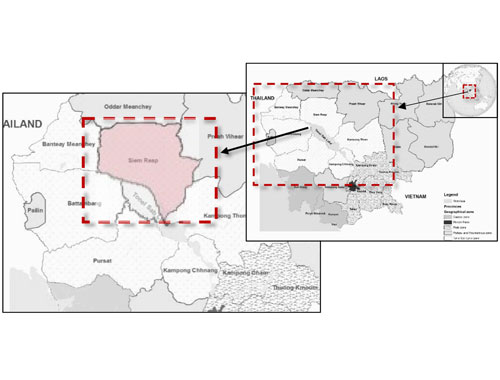Assessing processes of change and innovation in smallholders agriculture around Tonle Sap Lake, Cambodia
Donira Khan, Didier Pillot, and Prapinwadee Sirisupluxana
DOI: 10.14456/sjst-psu.2022.11
pp. 66 - 71
Abstract
Sustainability of agricultural systems is often presented in the literature as the capacity of these systems to be maintained over time, even though the circumstances in their environment may be changing when resources available get rare or when markets and value chains can be transformed. Such a vision tends to limit sustainability as a static concept. This paper challenges such a static conceptual framework to propose an opposed one, where sustainability is ensured when the systems are able to change and innovate to adapt to their environment and achieve even better efficiency of the use of their resources (compared to before the modification in the environment). For illustrating this point of view, this paper assesses the dynamics of farming systems around Tonle Sap Lake, Cambodia. This rural province is facing a number of changes in its environment, which may be agroecological, as the regime of floods from the Tonle Sap every one year, or economical as the opportunity costs of the labor that are pulled up by the rapid growth of the neighboring city of Siem Reap. It examines the interaction between resource endowment and production strategies of the major stakeholders, capture the agricultural transformation in the study area. This study borrows agrarian system diagnosis framework, a multistage analysis, to identify the changes in the strategies of the stakeholders. In-depth interviews were first carried out to collect historical data and build pre-typology. The study then collected quantitative data from 143 households to construct the main farm typology. The results reveal that five major distinctive farm types develop various innovative strategies in response to the modification of the environment to ensure their sustainability. However, there may also be some major innovations, like the extension of the broadcasting of the paddy extending in all systems at the same time to replace the transplantation. The conditions for such a โ€bulk innovationโ€, in response to sustainability needs, are discussed. The conclusion of this research confirms that sustainability should be held as a dynamic concept, adapted to societies in movement, rather than a resistance concept, marked by the maintenance of previous systems in changing environment.
